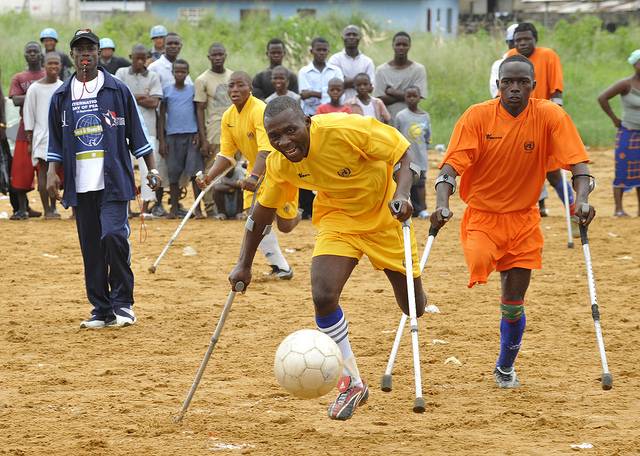Human rights of physically and mentally disabled individuals
Disability
The Convention on the Rights of Persons with Disabilities (“CRPD”) doesn’t give a meaning of handicap, however rather gives a wide portrayal proposed to be generally comprehensive. The CRPD sets up in Article 1 that ‘people with handicaps’ incorporates ‘the individuals who have long haul physical, mental, scholarly or tactile impedances which in collaboration with different hindrances may prevent their full and successful investment in the public arena on an equivalent premise with others’. This depiction of incapacity moves the concentration toward the social and natural obstructions that block a person’s cooperation in the public eye as opposed to on the person’s weaknesses.
This way to deal with inability is known as the “social model” of handicap. The “social model” perceives that the avoidance of an individual with a handicap from society is the consequence of an obstruction or deterrent to the person’s capacity to take an interest completely, instead of the aftereffect of the person’s innate powerlessness to take an interest. For instance, if an individual can’t get to a wellbeing centre due to his/her versatility hindrance, it isn’t his/her failure to walk which is the issue, but instead the facility’s absence of availability.
How is Disability a Human Right Issue?
People with incapacities reserve the privilege to the satisfaction in the most elevated feasible standard of wellbeing without separation based on handicap, under (Convention on the Rights of Persons with Disabilities) CRPD Article 25. In this unique circumstance, wellbeing is characterized as “a condition of complete physical, mental and social prosperity and not only the nonattendance of ailment or illness. “It is significant to take note of that the CRPD builds up that inability isn’t really an ailment and underscores the job of natural and attitudinal obstructions, as opposed to a debilitation (on the off chance that it exists by any stretch of the imagination) in blocking full and powerful cooperation in the public arena on an equivalent premise with others. While people with inabilities may on occasion need to get to wellbeing administrations for ailments identified with their incapacities, this ought not be ventured to be their essential requirement for wellbeing administrations.
The privilege to wellbeing in Article 25 must be deciphered with regards to the centre standards of CRPD delineated in Article 3. The centre standards incorporate non-separation; investment; self-governance, including the opportunity to settle on one’s own decisions; social consideration; sexual orientation balance; and correspondence of chance. These standards are larger and should control translation of other CRPD articles.
The CRPD necessitates that States Parties “take every single proper measure to guarantee access for people with incapacities to wellbeing administrations that are sex touchy, including wellbeing related rehabilitation. “Persons with handicaps face a scope of hindrances in getting to medicinal services administrations, including cost, openness, shame and segregation and absence of or deficiency of administrations and resources. Without equivalent access to human services, “individuals with inabilities are at genuine danger of postponed analyse, optional co-morbidities, industrious maltreatment, drained social capital, and isolation.”
Both the CRPD and the Committee on Economic, Social and Cultural Rights (CESCR) give direction on what availability means and how it ought to be comprehended with regards to wellbeing. The CRPD extensively characterizes openness in Article 9 as “access, on an equivalent premise with others, to the physical condition, to transportation, to data and interchanges … and to different offices and administrations open or gave to open, both in urban and country areas.” CESCR clarifies in General Comment 14 on the privilege to wellbeing that the four segments of availability are non-segregation, physical openness, financial availability, and data openness.
The CRPD builds up in Article 25 that States parties must “require wellbeing experts to give care of indistinguishable quality to people with handicaps from to others, bury alia, bringing issues to light of the human rights, poise, self-governance and requirements of people with incapacities through preparing and the proclamation of moral measures for open and private social insurance.” States should likewise deliver human asset hindrances to quality medicinal services for individuals with inabilities by incorporating inability instruction into undergrad preparing, giving medicinal services laborers proceeding with training, and supporting medicinal services laborers with sufficient assets.
Education is a social determinant of health, and lack of education can limit the enjoyment of the right to health and other economic and social rights. Generally, lower levels of education are associated with poorer health outcomes including illness, malnutrition and higher rates of infant mortality. It is important to consider access to education and quality education as part of the broader picture of health.
The option to work and business is likewise a social determinant of wellbeing and must be considered in the wide perfect example of wholeness and wellbeing. People with handicaps have low interest in the work advertise and, when utilized, are as often as possible utilized in low-paying positions.It isn’t amazing that accordingly, people with inabilities are lopsidedly poor and socially minimized. Work is a way to increase a living just as partake in one’s locale. The CRPD furnishes in Article 27 that people with handicaps reserve the option to chip away at an equivalent premise with other, including the “right to the chance to increase a living by work unreservedly picked or acknowledged in a work market and workplace that is open, comprehensive and available to people with incapacities.”
Author: Mayank Malhotra,
Student, School of Law, Christ (deemed to be University) DELHI-NCR


Good job man.